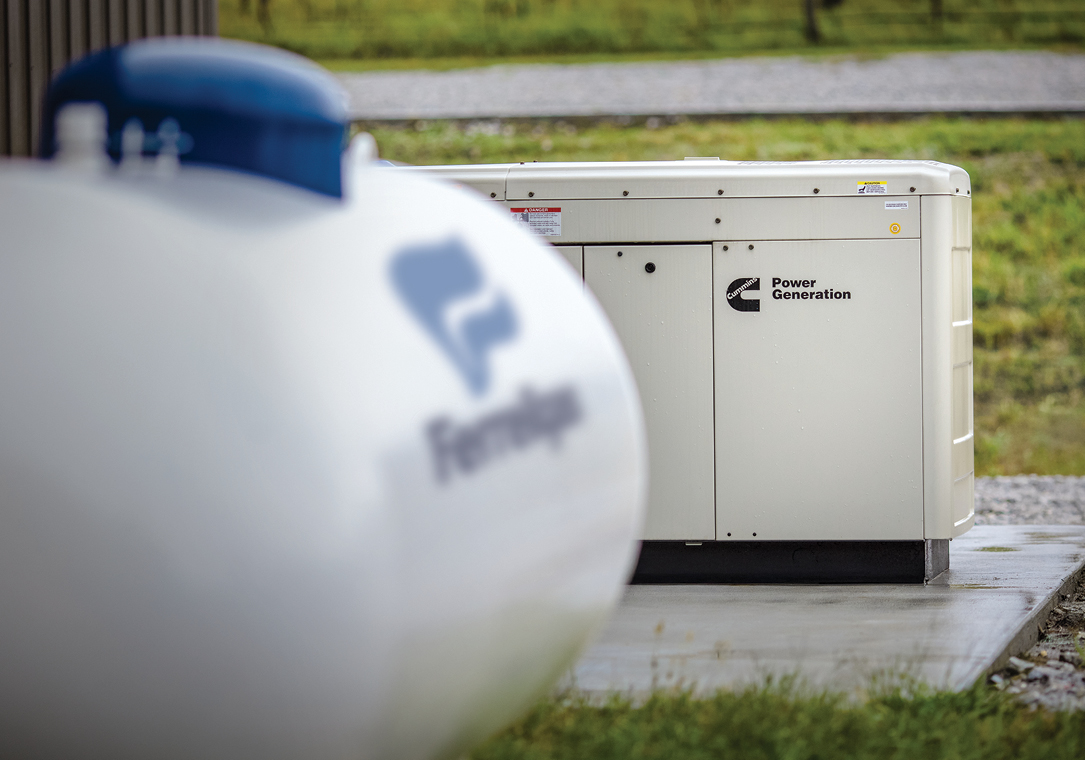The Cost of Electric Heating vs. Propane: Why Propane Is a Stable Choice
Rising energy costs are on the minds of many homeowners today. While electricity rates continue to climb due to infrastructure demands and seasonal spikes, propane remains a stable, dependable option for heating and powering homes. Taking a closer look at both helps highlight where propane can offer long-term value.
Looking for specific information? Click below to jump between sections.
- Electricity costs are climbing due to seasonal spikes and infrastructure demands like AI data centers, making budgeting less predictable for homeowners.
- Propane is often more cost effective, with appliances like furnaces and water heaters delivering higher efficiency and lower energy costs.
- Propane offers reliability beyond price, providing dependable heat during power outages and serving as a strong backup or supplemental fuel source.
Why Are Electric Heating Costs Rising?
Seasonal Spikes and Higher Electricity Demand
Homeowners often notice seasonal price fluctuations, especially in the colder months when heating needs increase. The U.S. Energy Information Administration’s (EIA) Winter Fuels Outlook 2025-2026 report projects households primarily using electricity for heating will spend an average of 4% more on energy bills this year than winter 2024-2025. By comparison, homes heated primarily with propane are expected to pay less on average than last winter.
Electricity costs are also rising as utilities spend more on infrastructure to meet increasing energy demand. The U.S. Census Bureau found that 42% of households reported using electricity as their main heating fuel in 2024, which is up from 35% in 2010. Propane is used for heating in just 5% of U.S. households, making it less impacted by changes in nationwide residential energy demand.
Emerging developments, such as AI data centers and the strain on an aging grid, are creating additional pressure. The costs for more infrastructure are often passed on to consumers through higher rates. The EIA expects the average U.S electricity price will increase by 13% from 2022 to the end of 2025.
How Does Propane Compare to Electricity?
Propane as a Cost-Smart Option
When looking at heating choices, propane is often the more cost-effective option. Because propane heats quickly and efficiently, appliances like furnaces and water heaters can deliver significant energy savings compared to their electric counterparts. Because propane heats quickly and efficiently, homeowners often see lower operating costs.
PERC reports that propane tankless water heaters can use up to 34% less energy than traditional storage models in homes with typical hot water needs. Propane furnaces are also designed for efficiency, with some of today’s high-performance models reaching AFUE ratings of up to 98%. AFUE, or Annual Fuel Utilization Efficiency, is simply a measure of how much of the fuel you buy is turned into usable heat for your home over the course of a season. The higher the number, the less energy wasted and the more comfort you get for every energy dollar spent.
One of the easiest ways to see propane’s heating power is by comparing BTUs (British Thermal Units)—the standard measure of how much heat a fuel can produce. A higher BTU output means greater heating capacity. The U.S. Energy Information Administration (EIA) reports that per unit, propane contains more than 26 times the energy of electricity. That energy density translates to faster, more efficient heating and often lowers overall energy costs for homeowners.

Propane Offers Reliability Beyond Price
Dependable During Power Outages
Unlike electricity, propane is stored right at your home, making it a dependable energy source during grid interruptions. In areas where storms or outages are common, propane can keep heating systems, water heaters, and essential appliances running.
Backup Power with Propane Generators
Propane-powered generators provide reliable backup power when the grid goes down, helping homes maintain heat, hot water, and lights during outages. We know reliability matters most when the power goes out. That’s why so many homeowners trust Ferrellgas propane to power their backup energy solutions.
Propane: A Supplemental Energy Solution
Our technicians regularly help homeowners compare energy options, and we’ve seen firsthand how propane furnaces outperform electric in both comfort and efficiency.
A high-efficiency propane furnace can reach up to 98% efficiency, meaning more heat for less fuel. Unlike electric heat pumps, which produce air below body temperature, propane furnaces generate heated air between 115-125 degrees Fahrenheit so homeowners enjoy a steady, comfortable warmth. Even households that primarily rely on electricity can benefit from propane. Adding propane-powered appliances like fireplaces or water heaters provides extra resilience and reduces reliance on a single utility.
Propane: More Heat, Longer Life, Greater Dependability
Propane furnaces provide warmer air and faster heat delivery than electric heat pumps, making homes more comfortable in less time. On average, propane furnaces last about 20 years, compared to the 12-year lifespan of many electric heat pumps. In addition, propane systems aren’t dependent on the grid, making them a more reliable choice during storms or power outages.
Choose the Right Propane Provider for Your Home
Propane delivers both stability and reliability, making it a smart energy choice for many homeowners. We take it a step further, providing dependable service backed by nationwide supply and a customer-first approach. Call 888-337-7355 to speak with a Customer Service Professional about propane options for your home and experience the peace of mind that comes with working with a trusted propane supplier.
Get Peace of Mind for Your Home
Contact UsCATEGORIES
Archives
- Winter 2025
- Fall 2025
- Summer 2025
- Spring 2025
- Winter 2024
- Fall 2024
- Summer 2024
- Spring 2024
- Winter 2023
- Fall 2023
- Summer 2023
- Spring 2023
- Winter 2022
- Fall 2022
- Summer 2022
- Spring 2022
- Winter 2021
- Fall 2021
- Summer 2021
- Spring 2021
- Winter 2020
- Fall 2020
- Summer 2020
- Spring 2020
- Winter 2019
- Fall 2019
- Summer 2019
- Spring 2019
- Winter 2018
- Fall 2018
- Summer 2018
- Spring 2018
- Winter 2017
